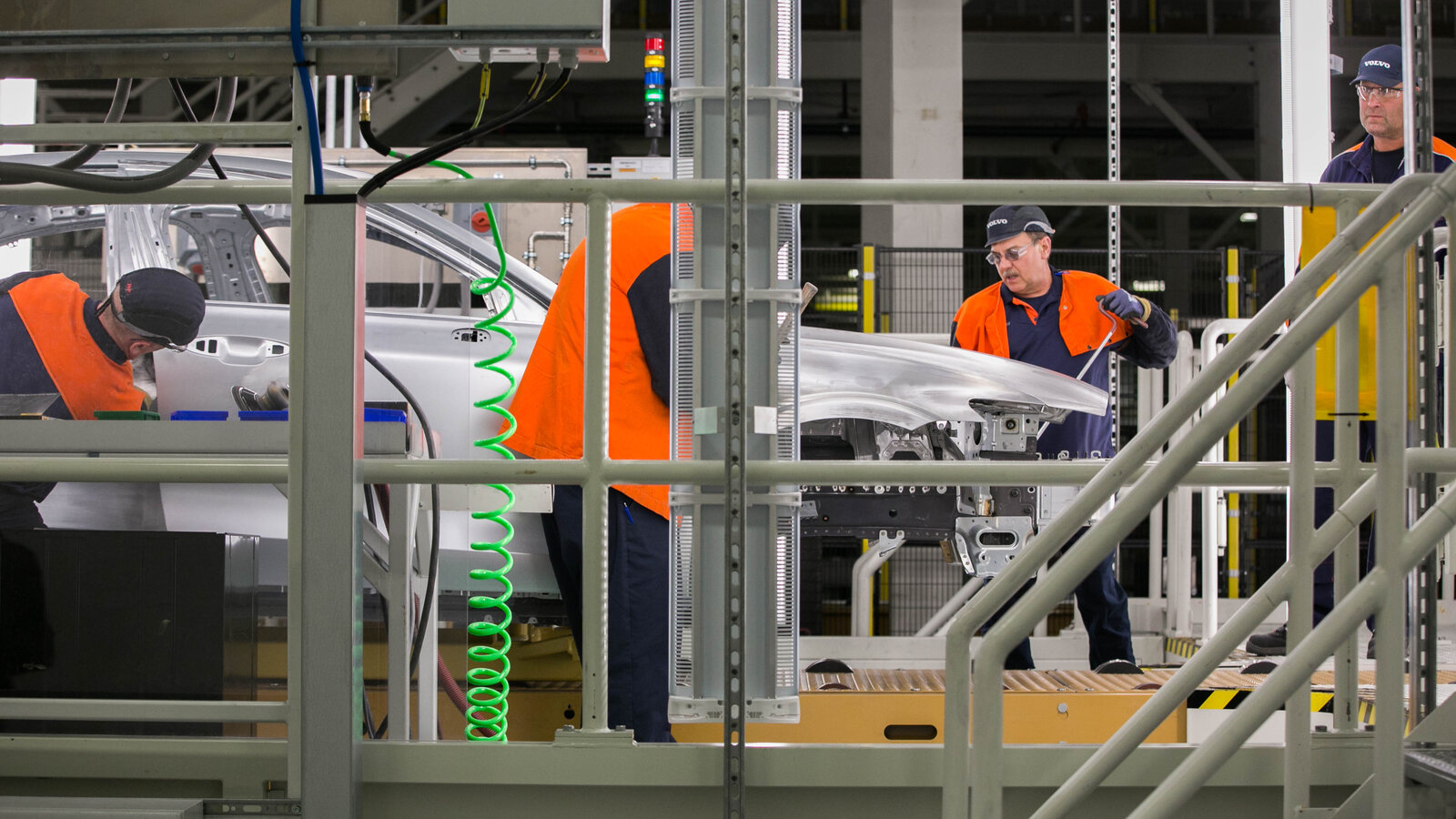Volvo to Expand Production of Hybrid Cars in South Carolina
Volvo Cars announced on Tuesday that it will expand its Ridgeville, South Carolina factory to produce a newly designed hybrid vehicle by the end of the decade. The move is aimed at meeting American demand for hybrid technology while avoiding costly tariffs. The plant, located near Charleston, already produces two electric vehicles and is set to begin manufacturing a third model, a midsize SUV, next year. The expansion marks Volvo’s push to grow its U.S. presence significantly.
The company said the new hybrid model reflects the continued popularity of hybrid cars among U.S. consumers. Volvo aims to increase its U.S. sales by 60% within five years, up from about 125,000 vehicles sold in 2024. The upcoming hybrid will join a growing lineup of vehicles tailored for American buyers. While Volvo has not released a prototype or detailed specifications, executives say the model will serve as a bridge in the shift toward full electrification.
Hybrids combine gasoline engines with electric motors and batteries, offering better fuel efficiency and reduced emissions compared to traditional cars. Unlike fully electric vehicles, hybrids can run on gasoline alone, removing concerns about charging infrastructure. This has made them particularly attractive in the U.S. market, where EV adoption has been slower than expected. Industry analysts say the move positions Volvo well to appeal to a broad customer base.
Chief Executive Hakan Samuelsson admitted that electrification had not grown as quickly as predicted just a few years ago. He stressed that hybrids would remain essential for longer than initially anticipated. “We think we need hybrid cars longer,” Samuelsson said, while also expressing confidence that EVs would eventually gain more traction as costs fall and range improves. The new investment underlines Volvo’s pragmatic approach to balancing current demand with future ambitions.
Despite the delay in full EV adoption, Volvo remains committed to electrification in the long term. Samuelsson noted that once electric vehicles can match the affordability and range of gasoline cars, their popularity will rise sharply. For now, however, the expansion of hybrid production in South Carolina underscores the company’s determination to adapt to the realities of the U.S. auto market. Volvo’s decision also signals the importance of flexibility as global carmakers navigate an uncertain transition to electric mobility.
Source: The New York Times.
news via inbox
Get the latest updates delivered straight to your inbox. Subscribe now!




